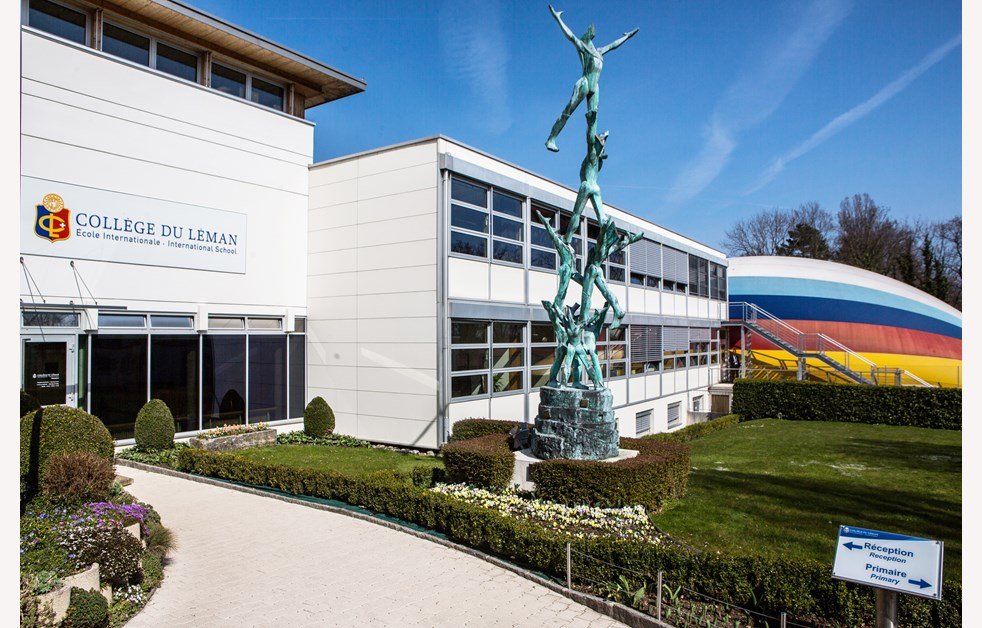In the educational landscape, students and parents often look for programs that offer an advantage in university admissions and academic preparation. The Advanced Placement (AP) program, available in several Swiss boarding schools like École d’Humanité, The American School In Switzerland (TASIS), Collège du Léman, Institut auf dem Rosenberg, Leysin American School and Institut Monte Rosa, is a clear example of the high educational standards these schools uphold.
Advanced Placement courses allow high school students to experience college-level classes and even earn university credits before graduating from high school. These courses cover a variety of subjects, similar to the British A-levels but tailored to an American educational format. This includes detailed studies and tough exams, recognized worldwide by universities for advancing students’ education early.

A standout example is Collège du Léman, located in Versoix, where students have an 82% pass rate on AP exams, much higher than the global average of 60%. This statistic underlines how well Swiss boarding schools prepare students not just to take these challenging courses but to excel in them.
The main advantage of taking AP courses is the opportunity to earn college credit. Colleges and universities across the United States acknowledge the rigor of AP coursework and grant credit or advanced placement to students who excel on AP exams.
Earning college credit through AP courses can have several benefits for students. Firstly, it can save students time and money by allowing them to complete college-level coursework while still in high school. Additionally, it can give students a head starts on their college education and allow them to pursue more advanced coursework earlier in their college careers.
However, it’s crucial for students to weigh several factors before diving into AP coursework. They must assess their own strengths, interests, and existing workload to ensure they can handle the demands of rigorous courses. While AP courses offer unparalleled opportunities for academic growth, they also require dedication, time management, and perseverance to excel. Thus, students should carefully consider their readiness and commitment before enrolling in AP courses.
Each AP course is structured to challenge students with college-level academic rigor. The courses are typically taught by teachers who have received specific training in AP content delivery, ensuring that the educational standards are equivalent to those found in freshman college courses. The curriculum not only includes comprehensive coursework but also integrates various assignments, projects, and lab work, depending on the subject.
The Advanced Placement (AP) curriculum is renowned for its breadth and depth, offering a diverse array of courses that cater to a wide range of student interests and academic pursuits. This variety allows students to delve into specialized topics that might not be available in a typical high school curriculum, providing a collegiate level of study while still in secondary education.
AP courses span across various disciplines, including:

For instance, TASIS offers AP courses based on interest. Courses over the past few years have included Art History, Biology, Calculus AB, Calculus BC, Chemistry, Computer Science, Drawing, English Language and Composition, English Literature and Composition, Environmental Science, European History, Macroeconomics, Microeconomics, Physics, Statistics, United States Government and Politics, and United States History. All students who take AP courses are encouraged to take the examinations in the subject, and many students choose to self-study for additional exams.

The AP program is designed with flexibility in mind, allowing students to choose how many and which courses to take based on their academic capacity and interests. Schools typically set up their timetable to accommodate students who are taking multiple AP courses, ensuring that they can fit these along with required high school courses. This flexibility is crucial in allowing students to manage their time effectively, balancing rigorous academic demands with extracurricular activities and personal commitments.
Participating in AP courses often complements a student’s involvement in extracurricular activities. Schools encourage this balance, recognizing that activities such as sports, clubs, and arts can enhance the educational experience and develop well-rounded individuals. These activities provide practical experiences and opportunities to apply academic learning in real-world contexts, which is invaluable in personal and professional development.

Each AP course concludes with an exam that assesses the student’s understanding and mastery of the material. These exams are standardized and scored on a scale from 1 to 5. Achieving a score of 3 or above is often regarded favorably by universities worldwide, potentially earning students college credit or the opportunity to place out of introductory courses.
After completing high school, students have various paths to consider. Many opt to pursue higher education at colleges or universities, where they can leverage their AP credits to streamline their academic journey. These credits can fulfill prerequisite requirements or grant them advanced standing, enabling them to bypass introductory courses and dive straight into more specialized classes relevant to their chosen field of study. This flexibility extends globally, allowing students to attend universities anywhere in the world and still benefit from their AP achievements.
Alternatively, some students may choose to enter the workforce directly after high school. The skills and knowledge gained from AP courses are highly transferable and sought after by employers in diverse industries such as technology, healthcare, and business. The critical thinking, problem-solving, and analytical skills cultivated in AP classes can equip students for success in various career pathways, providing a solid foundation for their professional endeavors.
